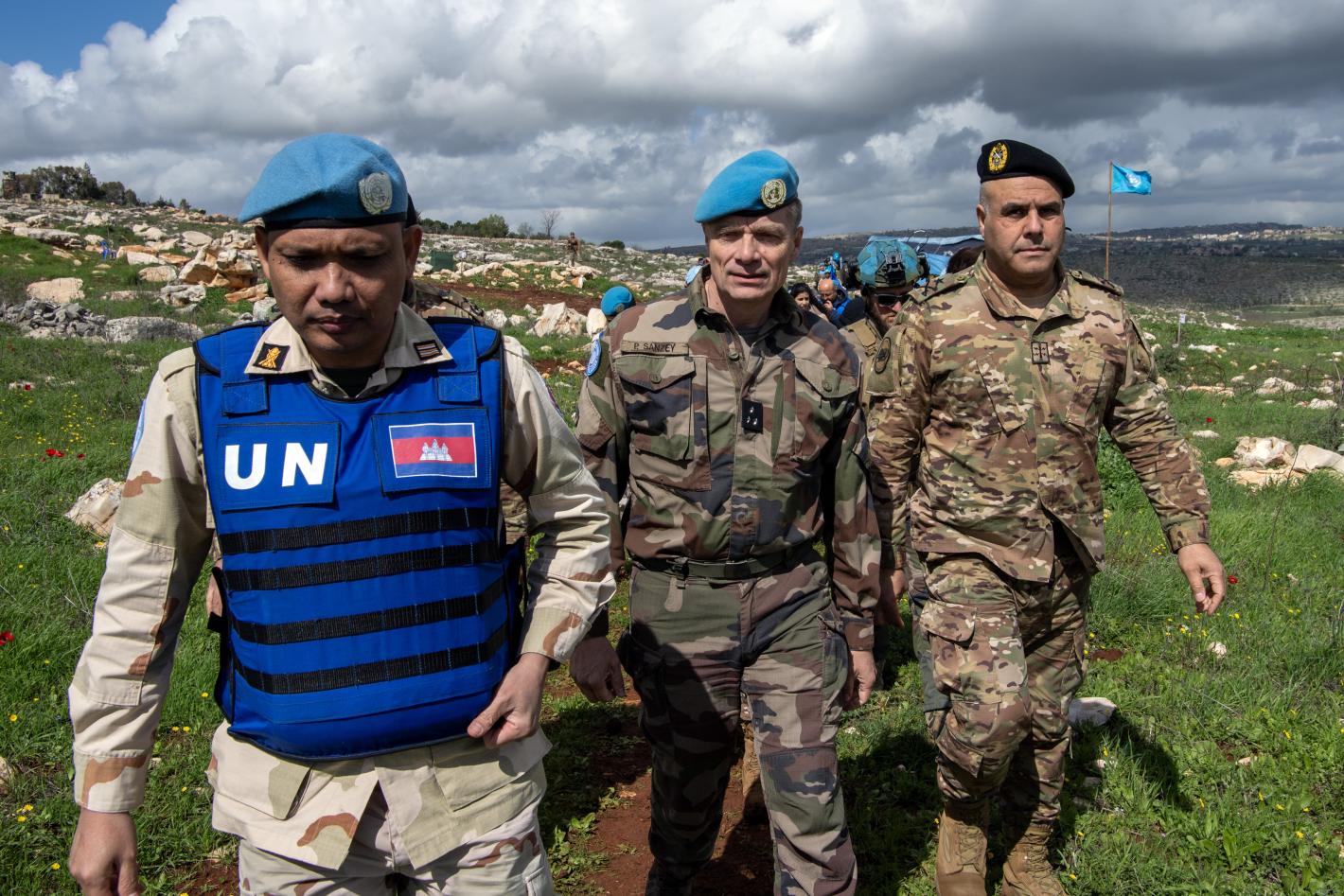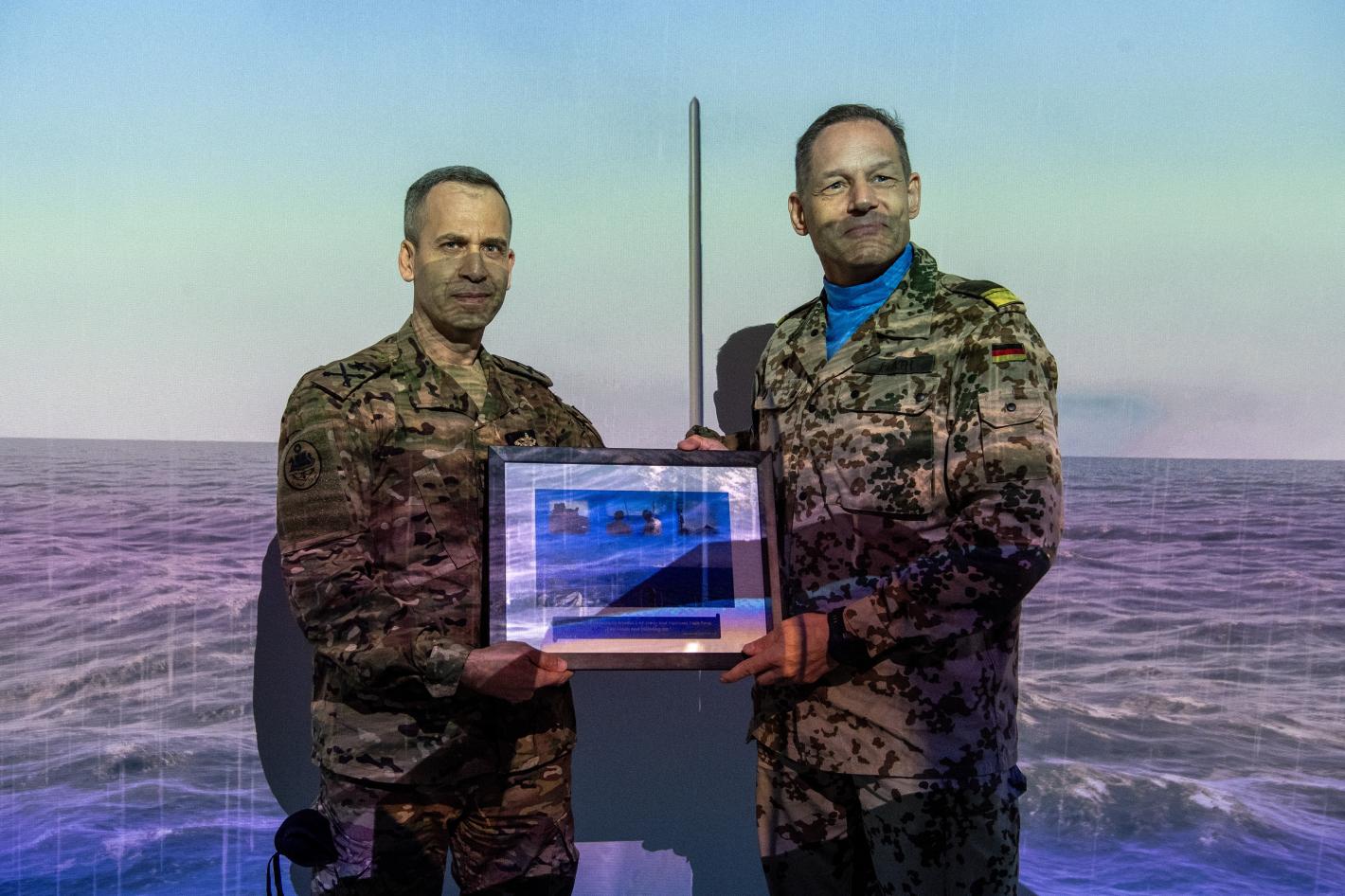The body lying on the floor with a mobile phone in his hand looks so realistic that a number of people walking by the unused prefab room take nervous second glances through the window. The dummy is part of a training exercise for members of south Lebanon’s Municipal Police and the room has been meticulously prepared by members of military police of the United Nations Interim Force in Lebanon (UNIFIL).
“An important priority when dealing with a crime scene is to cordon it off and prevent members of the public from contaminating it,” UNIFIL police trainer Warrant Officer Erebo Stirpe tells the municipal police officers as he hands out police tape to them.
This group will become the first responding team. Diligently they seal the area around the prefab and prevent pedestrians from passing through.
Youssef el Ghafari, who has been working for the Tyre Municipal Police force for 13 years, is in the second team. He pulls on forensic protective clothing and a mask and his team steps carefully inside the room. They place evidence markers in chronological order next to any item that may provide clues as to who could have perpetrated the crimes: a cigarette, a pool of blood, a finger print and the cell phone.
In 2006 the United Nations Security Council issued Resolution 1701 to foster peace and stability in South Lebanon. One of the key aspects of this resolution is capacity building and the extension of state authority. And this is done through training such as this. UNIFIL, in coordination with Lebanon’s Ministry of the Interior and the UN Development Programme, started organizing the training of Municipal Police Officers in southern Lebanon last year.
“The role of the Municipal Police is very important, keeping in mind they are always present within the community,” comments UNIFIL’s Police Advisor Deepak Agarwal. “They can be effectively utilized for preventive policing through basic police techniques and also as first responders till the time the Internal Security Forces come and take over the scene of a crime or incident.”
Mr. Ghafari watches as his gloved colleagues collect evidence using tweezers and place the items into marked bags. He pulls down his forensic mask and says, "As a member of Tyre Municipal Police we used to see on TV crime scenes and how investigations happen, then we had this training session. Now we have a full understanding that when we are present in a scene where a crime or a theft has happened the first thing we do as police is to work together to block the area and forbid anybody from entering until the security forces arrive and conduct an investigation."
The following day at a session on road checkpoints the comradery between the members of the local and international police organizations is strong. There are many questions and discussions in between each practical activity. One of the UNIFIL Military Police Carabinieri trainers, Warrant Officer Claudio Serafini, watches as three municipal police officers try out some of the new techniques they have been shown.
"The good part is that we are able to share our experiences with those of the police offices in the field here,” says Mr. Serafini. “And of course there are questions and every day we talk about something because they tell us how they do something and we tell them how we do it, so it's a mutual learning experience."
The five day course is a mixture of theoretical and practical training and covers basic police skills such as conduct and discipline, behavior, checkpoints, communication, patrolling and human rights. To date six modules have been completed with approximately 90 trainees from 25 municipalities.
----------------------------------------------------------------
Article: Aoibheann O’Sullivan
Video Editor: Suzane Badereddine, Mohamad Hamze
Video Camera: Mohamad Hamze
Photo: Pascual Gorriz Marcos
----------------------------------------------------------------






